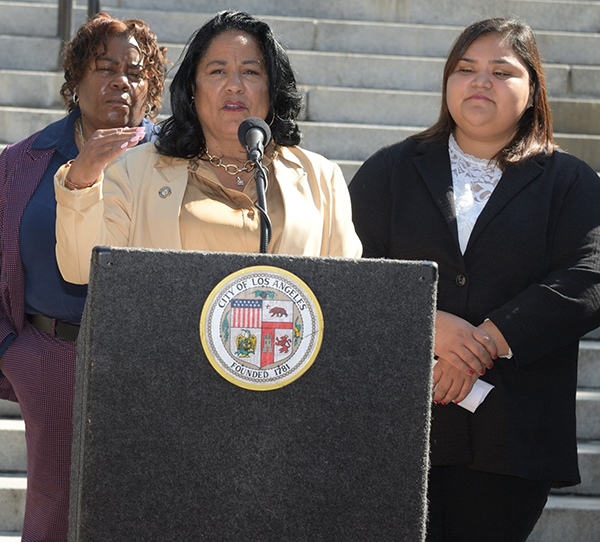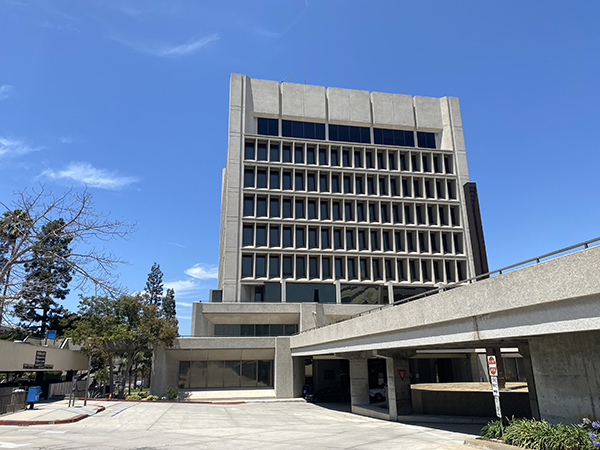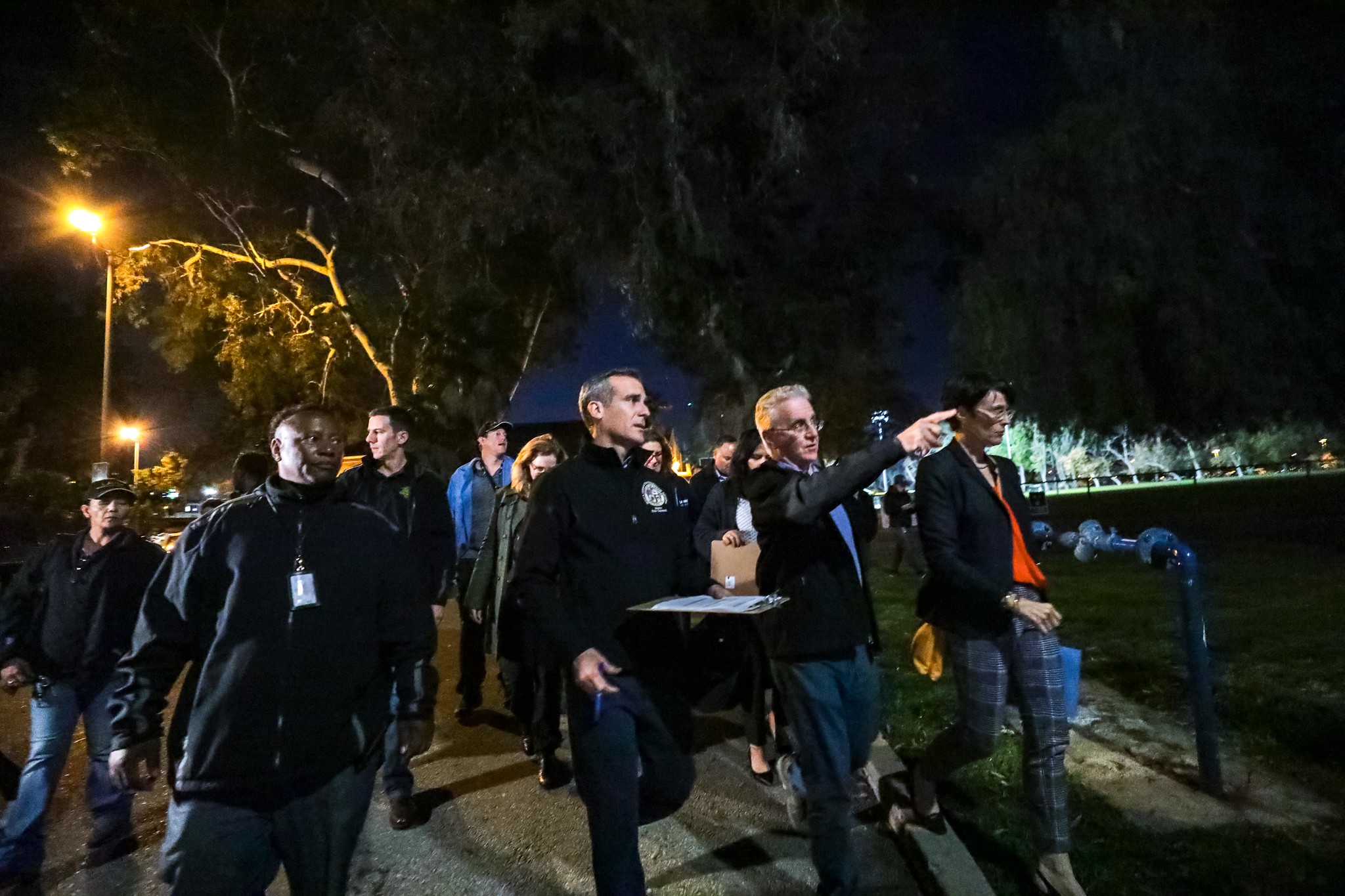Wave Wire Services
LOS ANGELES — The county Board of Supervisors has voted to support a request by Los Angeles County’s lead homeless services agency to postpone a federally mandated count of people living on the street in order to avoid a potential COVID-19 superspreader event.
The Los Angeles Homeless Services Authority is asking the U.S. Department of Housing and Urban Development to be exempted from counting unsheltered homeless individuals in 2021.
Supervisor Hilda Solis recommended supporting the authority’s position.
“Moving ahead with the [point-in-time] counts would be a risky and challenging activity at best and a dangerous, superspreader event in the worst-case scenario, quickly infecting a high number of people with a very contagious and deadly disease,” Solis stated in her motion.
HUD requires the count in odd-numbered years as a condition of federal funding.
The federal department has not made a move to drop the requirement nationwide, though it acknowledges on its website that sampling may replace a more comprehensive count this year and that some jurisdictions may not be able to comply.
Agencies asking for an exemption are being asked to explain what other efforts they will take to understand the needs of unsheltered homeless individuals in their communities. The Los Angeles County count typically involves thousands of volunteers, including service providers who are already stretched thin during the pandemic.
A homeless authority spokesman said the agency was still planning to conduct a 2021 count of all homeless individuals living in shelters, as well as a housing inventory.
Street encampments have been growing dramatically over the last few years, and nearly three-quarters of the 66,346 Los Angeles County residents enumerated in last year’s count were unsheltered and living in tents, cars or other makeshift shelters.
In addition to gauging what is almost certain to be an increase in homelessness — given that people are falling into homelessness faster than the county and various cities can provide temporary or permanent housing — the annual count typically helps determine where the need for services is most concentrated or whether special programs should be designed to help the elderly or families, for example.
Separately, Supervisor Janice Hahn took aim at the authority for delays in reimbursing homeless service providers. She asked her colleagues to support a plan for the county’s CEO and auditor-controller to step in and set up a system to execute all funding contracts within 30 days, barring federal or state requirements for a longer time period.
“I was really disappointed and shocked … to hear that many of our providers are facing challenges with LAHSA’s contracting and billing process that has put an unnecessary burden on them,” Hahn said. “Many are operating without contracts, and some are relying on their own lines of credit to make payroll and support their clients, which accumulates interest that is not reimbursable. They’re using their own credit cards.”
During public comment, one representative of a homeless services provider acknowledged that LAHSA has faced growing pains given the rapidly increasing number of homeless individuals, but said her nonprofit organization was also hiring more workers and subcontracting with smaller nonprofits that needed to be paid.
“We have over $11 million of receivables. How are we expected to function?” said Veronica Lewis, director of the Homeless Outreach Program Integrated Care System (HOPICS). “I just don’t think it’s appropriate for the providers to take the brunt of this while everybody else figures it out.”
Supervisor Kathryn Barger co-authored the motion, which also called for setting up a master contracting system to mimic the one managed by the county’s Department of Health Services.
“We frontloaded a lot of funding to LAHSA because they were having difficulty with their cash flow. … I thought that we had actually fixed that,” Barger said. “We’re asking our providers to do more with less right now. … I think it’s important for us to provide the support that we had promised to give them.”
Hahn recalled her move earlier this year to quickly build a shelter in San Pedro to move individuals from a crowded street encampment indoors. She began the process working with LAHSA but ended up shifting gears to get help from the Department of Health Services when LAHSA’s contracting process proved too slow. An existing building was refurbished for use as a shelter in six weeks.
Barger said the county cannot afford to lose nonprofits that have been effective in building trust with homeless individuals.
The county has been considering a restructuring of LAHSA based on a motion brought by Hahn and then-Supervisor Mark Ridley-Thomas in September.









